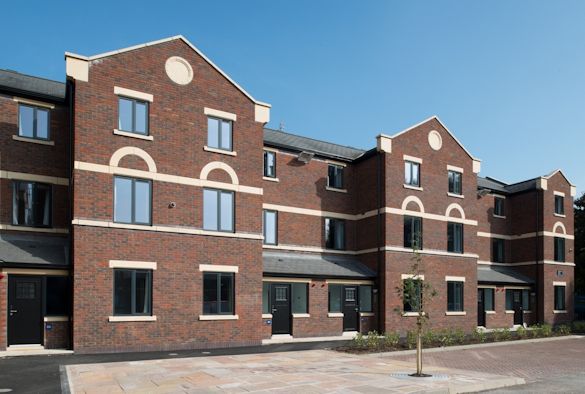
As part of the University of Liverpool’s response to COVID-19, from this week the University will be offering accommodation to front line NHS staff working at the Royal Liverpool University Hospital during the pandemic.
Some workers have already moved into Melville Grove Halls of Residence, which is situated on Grove Street, near to the hospital, and the edge of campus.
Melville Grove, which usually houses first year undergraduate students, has been made exclusively available to NHS staff during this time and the University’s Residential Services team is working closely with the Liverpool University Hospitals NHS Foundation Trust on the initiative.
The Accommodation team are working hard to ensure that the workers stay is as comfortable as possible during this busy and unsettling time, and are providing bedding and kitchen essentials to help them feel settled.
Social distancing measures are also in place at the site to ensure a safer living environment. These include ensuring each flat is not full to capacity, a ‘one in one out’ policy for communal areas such as kitchens and laundry rooms, and a remote, contactless booking and check-in system.
In line with teaching and assessments moving online for the rest of the academic year, many students have already moved out of University-owned accommodation. All students have now moved out of Melville Grove, and the University recognises and is thankful to those few students who have relocated in line with this new initiative.
How else is the University supporting the NHS?
The University is working to support the NHS during the COVID-19 pandemic in a range of ways.
This includes re-purposing equipment, such as oxygen compressors, for NHS use, and opening up University car parks to NHS staff.
Many clinical academics have returned to front-line medicine, as well as final year medical and nursing students volunteering to support patient care at local hospitals. Thousands of students and staff are supporting in non-clinical areas, such as providing childcare for key workers and food distribution across the city.
Engineers at the University are using their expertise in 3D printing and laser cutting technologies to produce protective visors for staff in local hospitals.
Find out more on our COVID-19 webpages.